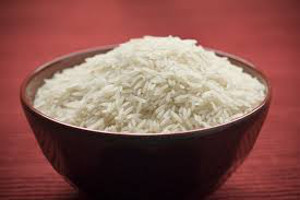 als will meet next week to consider more rice imports and ending a subsidy for farmers to cut debt at the National Food Authority, Presidential Assistant for Food Security Francis Pangilinan said.
als will meet next week to consider more rice imports and ending a subsidy for farmers to cut debt at the National Food Authority, Presidential Assistant for Food Security Francis Pangilinan said.“We’re going to have to bite the bullet and make hard decisions to squarely address the issue of buying high and selling low,” Pangilinan, 50, said in an interview in his office in Manila today. “Instead of price subsidies, my inclination is, why don’t we bring down the cost of production?” He declined to give more details.
Philippine President Benigno Aquino is seeking to curb food inflation running at the fastest pace since 2009, boosted by the higher cost of rice, a staple food. Debt at the National Food Authority, which subsidizes farmers by buying their rice at higher prices, will probably climb to 180 billion pesos ($4.1 billion) by end-2016 without changes to the program, Aquino has said. That is about twice the defense budget this year, according to Bloomberg calculations.
“The Philippine economy could probably gain by allowing more rice imports, freeing up national resources to be directed towards other things,” said Edward Teather, a Singapore-based senior economist at UBS AG. The current policy doesn’t have an efficient outcome when the government is spending “resources on a subsidy and yet the average Filipino is still paying relatively high prices,” he said.
Imports Needed
The Philippines, the largest importer of rice in Southeast Asia and the biggest buyer in Asia after China, plans to import 1.4 million tons this year, including volumes agreed last year, Pangilinan said. More imports are “needed” and the quantity will depend on the impact of drier weather from El Nino, the expected yield of the next harvest, and the government’s buffer stock, he said.
Food prices surged 7.4 percent in June from a year earlier, while the inflation rate was 4.4 percent. Food and non-alcoholic beverages have a weightage of about 40 percent in the consumer- price index basket.
Asian policy makers are under increasing pressure to curb inflation amid rising food prices. The Philippines in June announced it will import an additional 200,000 metric tons of rice from Vietnam, while India last month pledged to offload 5 million tons of rice, about a quarter of its stockpiles, at subsidized rates and also crack down on hoarders.
Philippine domestic rice prices, which rose to a record in June, may ease by end of September as 600,000 metric tons of imports are expected to arrive this quarter, Pangilinan said. Separately, it allowed traders in February to buy 163,000 tons of rice from overseas.
Record Prices
Retail prices of well-milled rice rose 20 percent from a year earlier to a record as of the third week of June, according to the Philippine Statistics Authority. The rice-subsidy program has been in place since at least 1989.
“The increase in rice prices really is inflationary; it affects other products,” said Pangilinan, who holds a master’s degree in public administration from Harvard University. He was appointed to his current position in May this year.
Policy makers will consider a proposal in July to adopt a free market and allow traders to import as much rice as they want, Economic Planning Secretary Arsenio Balisacan said in an interview last month.
The Philippines may import 2 million tons this year and 1.8 million tons in 2015, according to the U.S. Department of Agriculture. The meeting of officials to decide on the rice policy will take place July 16, Pangilinan said.





